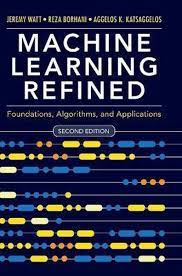EE2ML1 Introduction to Machine Learning
This course is aimed at 2nd year BSc EE students, and offered as an “extra” beyond your compulsory curriculum. During the course students are exposed to the basics of machine learning (ML) suited for electrical engineering students. The topics include: Mathematical optimisation, regression and classification, linear unsupervised learning, neural networks and tree-based learners. We will use the Python programming language in this course.
The course is graded Pass/Fail based on take-home assignments.
Study Goals
By the end of the course, students should be able to:
- Formulate practical real-world problems as mathematical equations (optimization problems) and solve them.
- Explain the theoretical concepts behind machine learning algorithms and its challenges including data, feature extraction, model selection and evaluation.
- Design and implement various machine learning algorithms for real-world applications using python.
Education Method
The course consists of seven lectures of 2h per week. During these lectures, we present theoretical concepts and real-world examples, but the most important part of the course are the coding exercises in the form of take-home Python assignments. During the course, you will implement and test algorithms, and in the final session, you solve a task based on all the implementations you did before. Template codes and toolboxes are available as well as datasets to perform these tasks.
Book
“Machine Learning Refined, Foundations, Algorithms, and Applications” by Jeremy Watt, Reza Borhani, and Aggelos K. Katsaggelos, Cambridge University Press; 2nd edition; 2020; ISBN: 9781108480727.
Teachers
MSc Bahareh Abdi
Biomedical signal processing
prof.dr.ir. Alle-Jan van der Veen
Array signal processing; Signal processing for communications
Last modified: 2024-09-04

Details
| Credits: | 3 EC |
|---|---|
| Period: | 0/0/2/0 (not running) |
| Contact: | Bahareh Abdi |